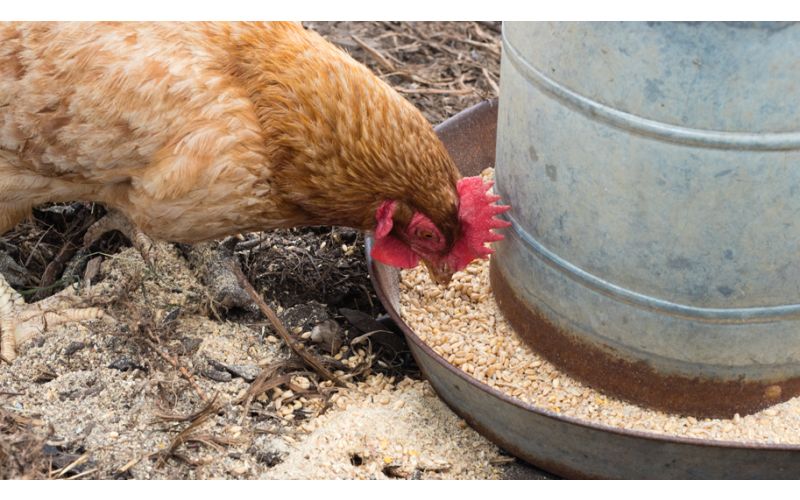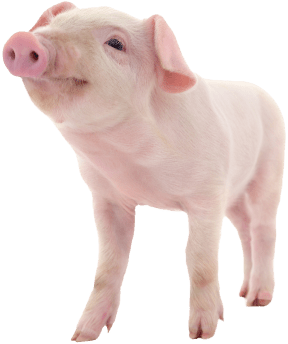
Supercharge Your Flock: The Benefits of Poultry Feed Supplements
|
|
Time to read 2 min
 You are being redirected to QC Supply Pharmacy, where you’ll find a wide selection of high-quality prescription and pharmaceutical products for animals of all sizes.
Enjoy the same great service and expertise you trust from QC Supply.
Click below to continue shopping.
Continue
No thanks, stay on the main site
Powered by
You are being redirected to QC Supply Pharmacy, where you’ll find a wide selection of high-quality prescription and pharmaceutical products for animals of all sizes.
Enjoy the same great service and expertise you trust from QC Supply.
Click below to continue shopping.
Continue
No thanks, stay on the main site
Powered by


|
|
Time to read 2 min
Just about all feed is engineered with a proper nutritional balance in mind. Regardless if you keep a large free-range layer flock or just keep a few backyard hens, supplements can make all the difference in boosting egg quality and production, laying duration, and maintaining general animal health. These supplements can be added to poultry feed or offered as separate additions. There are also supplemental additions to bath pans and light exposure that can boost both pest-resistance and laying duration well into the colder months when production generally wanes.
Because chickens lack teeth—they break their food down in gizzards—making grit available to them will aid digestion and help prevent impaction. Gizzards, through muscle action, break down food by rubbing grit against it before the food passes to the stomach for digestion. It is especially helpful to chickens that do not free range. Builder’s sand or dirt are two options that will provide the sort of grit chickens need. Offer grit free-choice in a separate container.
If layer hens lack calcium, their bodies will start claiming calcium from their bones to make eggshells. If you’ve noted your eggs have a soft or rubbery shell, the time is right to supplement. Many farmers use limestone, oyster shell, or dried and crushed eggshell as an additive in the meal of their hens’ diet. Mixed in with their regular feed, calcium boosts shell thickness and general hardiness. You can also offer it generally as free-choice in a separate container.
Phosphorus is needed to help chickens metabolize calcium. Free range birds should get adequate phosphorus naturally but that’s not a guarantee. Offer a free-choice option in the forms of defluorinated rock phosphate or phosphorus-16. Hens fed standard feed are likely to get adequate phosphorus and do not need a supplement.
Adding electrolytes—by following the packaging directions—is a smart way to perk your chickens up, particularly if they’ve experienced stress. Extended hot weather, changes to their environment, new and/or additional members of the flock, an unsuccessful predator attack, illness—all these can stress your chickens. Electrolytes added to their water will replenish lost minerals and help them regain their strut.
Adding certain culinary herbs like garlic, parsley, thyme, or nettles and grasses to your feed can mimic the natural grazer’s diet in cold months when a bird cannot free range. Chopped garlic mixed in with feed can help fight off disease and keep respiratory systems in shape. 1 Tbsp. per gallon of feed is another appropriate ratio.
Molasses is a well-known source of iron and has the added benefit of helping other supplements like garlic to stick to feed mixes.
When daylight hours shorten, adding a timer to an inside coop light allows you to create the appearance of summer. Setting the light to come on around 4AM instead of a natural 7AM sunrise causes the birds’ bodies to assume summer is back with longer days—thus they will ideally approximate summer egg-production levels. If you prefer, extend the end of the day a few more hours instead.
But be careful. Tinkering with an animal’s biorhythms is something best done with care and only after research. Additionally, plenty of studies show light from different areas on the spectrum cause chickens to behave differently. If you’re thinking of adding lighting to your coop, it will be important to do research.
While traditional feed is balanced to meet a chicken’s nutrient needs, some environmental causes can force your hand. Keep an eye on your chickens and, if necessary, act on their behalf.
Did we miss a supplement you use? Spread the knowledge in the comments section!